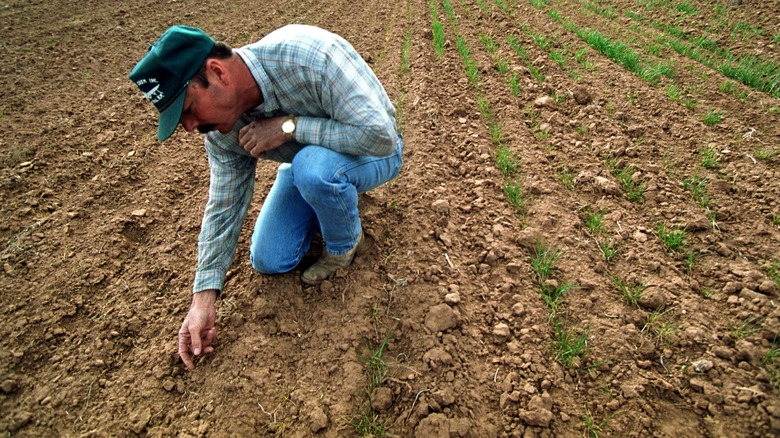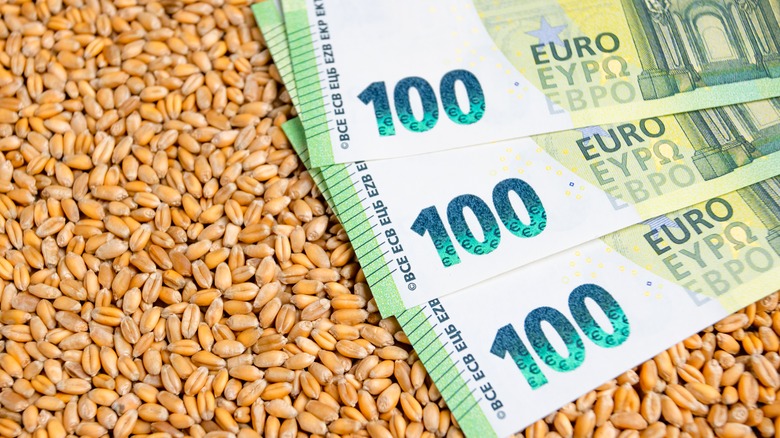The UN Has A Serious Warning About The Global Food Supply
Despite having reached a deal to allow for shipments of food and fertilizer from the Black Sea, the war between Russia and Ukraine has continued to create severe problems for the global food supply. The United Nations issued a stark warning on September 14, stating that the world is at "a real risk of food shortages" in 2023 (per RTE).
Not only are Russia and Ukraine large global exporters of food staples like wheat, corn, barley, and sunflower oil – Newsweek reports that the two nations account for over 25% of the world's wheat supply and 20% of its corn — Russia and its ally Belarus are also major suppliers of ingredients needed for mineral fertilizers, including potash. While the U.S. and its allies in Europe have stressed that Russian fertilizer and crops are not subject to the economic sanctions imposed on the former Soviet nation for its invasion of its western neighbor, Euractiv notes that receiving shipments from Russia has been complicated for the rest of the world by the measures, which have cut Russia off from international banking systems and raised costs on shipments.
With imports of eastern European grain reduced and a lack of fertilizer to treat local fields, the UN is concerned that nations in Africa and the Middle East already hit hard by climate change will face famine in the near future, while other parts of the world could face severe shortages and continued, crippling inflation.
Bigger than just crops
Unfortunately, the fertilizer shortage is more complicated than just sourcing ingredients. According to Euractiv, there are other countries who could potentially provide the minerals necessary for Europe and Africa to manufacture fertilizer, including Morocco, Algeria, and Canada, though those arrangements could take time and careful diplomacy to negotiate. The bigger issue is the process of making the fertilizer. As Politico explains, fertilizer manufacturing is an energy intensive process, which in Europe means it requires a lot of natural gas, 40% of which is imported from Russia (via BBC).
Although natural gas is a commodity the UK and the EU have continued to source from Russia, Vladimir Putin's government has begun toying with the supply, reducing and eventually cutting off flows through major pipelines and threatening to continue the shut-off indefinitely if the west does not lift or loosen sanctions (per CNBC). Already, Politico reports that major fertilizer manufacturers in the UK and Norway have halted or dramatically cut production due to the soaring price and potential shortage of natural gas. This has led to fears not just of crop shortages down the line, but also of more immediate problems in other food sectors.
A major byproduct of fertilizer production is pure CO2, which is used to carbonate beer and soft drinks, as well as for shipping frozen foods in the form of dry ice, and for stunning livestock for humane slaughter. Without fertilizer production, this vital chemical could also face shortages and leave food markets scrambling.

